
The VI edition of the International Congress on Innovation and Research in Neurodegenerative Diseases (CIIIEN) will held on September 19-21, 2018 in Santiago de Compostela, Spain at the Faculty of Medicine of the University of Santiago. This key meeting on Neurodegenerative Diseases is annually organized by the Center of Research in Neurological Diseases (CIEN) Foundation and the Center for Networked Biomedical Research in Neurodegenerative Diseases (CIBERNED) with the support of the Queen Sofia Foundation.
This meeting is celebrated every year since 2013, coinciding with the World Alzheimer´s Day (September, 21st) and focuses on main research advances in neurodegenerative disorders, particularly Alzheimer´s, Parkinson´s and Huntington´s diseases.
The main objective of CIIIEN is providing a forum to discuss a range of areas of interest related to basic, clinical and translational aspects of the research on the neurodegenerative diseases among the scientific community. More than 400 researchers from several countries will attend this International Congress.
We look forward to welcoming you in Santiago de Compostela, Spain.

























Elena Alberdi, is a Senior Investigator at the Department of Neuroscience of Faculty of Medicine and Nursery of the University of Basque Country (UPV/EHU) and at “Achucarro Basque Center for Neuroscience”. She obtained her PhD degree in University of Navarra and enjoyed a postdoctoral stay with a Fogarty International Center fellowship under the NIH Intramural Research program at the National Eye Institute-NIH. She returned with a Ramón y Cajal position to the Department of Neuroscience of the UPV/EHU where she is currently Senior Investigator of Neuroscience since 2011. The long-term goal of her research is to understand cellular and molecular mechanisms that govern glial cell biology and to dissect how glial reactivity and neuron-glial interactions contribute to nervous system neurodegeneration.
Elena Alberdi has been granted with several research projects funded by local and national government agencies to study the molecular regulation of myelination and remyelination, and the amyloid beta signaling in astrocyte response and in neuronal excitotoxicity in Alzheimer´s disease. Elena Alberdi teaches subjects related to Biomedical Research in the Degree of Medicine and is a Vocal member of the Master of Neurosciences at the UPV/EHU.

After her thesis and first postdoctoral years studying the molecular basis of the immune response to viral infections, she began to work in genetics and molecular pathology of the of Alzheimer’s disease, collaborating since then with Dr. Ana Frank of the Hospital La Paz. Among her main scientific contributions, the discovery of functional polymorphisms in the promoter of the APOE gene associated with Alzheimer's disease was a highlight in the field.In the last years, her team has focused on the functional genomics analysis of pathogenic cell models to search for new risk factors and mechanisms in Alzheimer’s. To validate these models as a reflection of the pathogenesis, we use genetic and, more recently, biomarker studies of patients and controls. One of her main interests is to evaluate the possible involvement of the herpes simplex virus 1 (HSV 1) in the pathogenesis of the disease. Her team has shown that HSV 1 - further in the presence of oxidative stress is able of inducing the main histopathological markers of the disease, including alterations in the metabolism of the amyloid precursor protein and tau hyperphosphorylation, and that this capacities could be mediated by its effects on the autophagic endocytic lysosomal axis causing a profound alteration of lysosomal function.
She participates in the main consortia for the study of the Alzheimer’s genetic risk factors. She is a member since its creation in 2008 of the EADI European Consortium, which published the first major study of association at the genomic scale –GWAs and later joined the largest network of genomic study of the EA (IGAP) worldwide. This has allowed her to be part of the main discoveries on EA genetic risk factors over the last years. She also collaborates with the leading Spanish experts in the genetic study of Alzheimer's disease and dementia, recently constituted as the Consortium DEGESCO. These collaborations provide a great value to the individual work of the groups, and allow tackling projects of genomic study of dementia in the Spanish population.
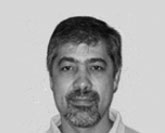
I am research scientist at the Instituto de Salud Carlos III (ISCIII) and CIBERNED, and director of the Chronic Diseases Programme at CROSADIS and collaborator of the CIEN Foundation. At present, I am responsible of the national reference center for molecular diagnosis of human transmissible spongiform encephalopathies, collaborator with the ECDC program for training and formation of microbiologist (EUPHEM) and National Expert for surveillance and diagnosis for the ECDC for human prion diseases. Institutional representative for the ISCIII to the Spanish National Strategy on Chronic Diseases.
Author of 98 articles with more than 5700 citations and H index=38 (data from Google Scholar). I have expertise on neurodegenerative disorders, mainly cerebral amyloidosis, such as AD, as well as on molecular diagnosis of prion diseases and characterization of the causal agent. During my PhD studies (1990-1995), I worked on the structural characterization of a human plasma protein (a1-microglobulin), as well the development of a new method for staining gels in a reversible way. While at Dr. Frangione´s Lab (1996-2000) in the New York University (New York, USA) the main interest of my research was focused on the analysis of biological fluids and the characterization of the interaction of the amyloid beta peptide with apolipoprotein in Alzheimer´s disease and other cerebral amyloidosis, including Hereditary cerebral hemorrhage with amyloidosis, Icelandic type (HCHWA-I), British and Danish Familiar Dementias and CJD.
Since December 2000, I lead the Spongiform Encephalopathies Unit at the CNM of the ISCIII, and I participate as principal investigator or collaborator in several funded projects dealing with basic research and diagnostic approaches to prion and Alzheimer´s diseases. My research Unit functions as a National Reference Center for the molecular and biochemical diagnosis of CJD in Spain since January 2001. The expertise of the group includes a wide experience on neurodegenerative disorders, mainly cerebral amyloidosis, such as Alzheimer´s disease, as well as on molecular diagnosis of prion diseases and characterization of the causal agent. The actual focus of my group lea is on: i) Molecular diagnosis, ii) and basic research on genetic susceptibility markers, and processing of the amyloid precursor proteins, and iii) molecular basis of conformational disorders including Alzheimer disease, prion diseases, Parkinson disease.
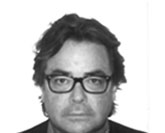
Antonio Camins Espuny, PhD. is a Professor at the Faculty of Pharmacy and Food Sciences (University of Barcelona), where he teaches Pharmacology in the Pharmacy degree and Neuropharmacology in MSc programs (Neuroscience and Pharmacy). In 1987, he started his PhD’s experimental research in the Pharmacology and Pharmacognosy Laboratory at the Faculty of Pharmacy in the University of Barcelona, that concluded into the Thesis "Characterization of the peripheral benzodiazepine receptor in rat and human tissues” in the year 1992 with the achievement of the highest qualification “Cum Laude." He obtained a postdoctoral fellowship (1992-1993) from SANDOZ laboratories (NOVARTIS, SWITZERLAND). During his postdoctoral research, he studied the mechanisms involved in the process of agranulocytosis caused by clozapine, an antipsychotic drug. Next, he also held a visiting professorship at the University of Loja (Ecuador).
Furthermore, he has been part of more than 18 national research, European and CYTED projects. Moreover, he has also participated in different international or national conferences and symposiums, as well as, been co-director of 14 Doctoral Theses and more than 25 experimental MSc. Currently, he participates in the editorial board of several international journals such as Frontiers in Aging Neuroscience, Pharmaceuticals, Current Pharmaceutical Design, Journal of Alzheimer's disease, Frontiers in Bioscience among others. His research interests relate to the role of potential drugs in the treatment of Alzheimer’s disease and the effect of an obesogenic diet as a cofactor that accelerates the appearance of cognitive loss.

Dr. Ángel Carracedo is professor at the Faculty of Medicine (University of Santiago de Compostela), He coordinates the Genomic Medicine research group at the USC, a research unit with more than 100 people working on medical applications of genomics. He is director of the Galician Foundation of Genomic Medicine (SERGAS, Galician Service of Health), director of the Spanish National Genotyping Center (PRB2-ISCIII) and group leader at the Centre for Biomedical Network Research on Rare Diseases (CIBERER). Director of the Institute of Legal Medicine (USC) from 1992 to 2013.
Most of AC recent research is now mainly concentrated on genetics of complex traits (particularly cancer and psychiatric diseases) and pharmacogenomics. AC has published 12 books and over 600 papers in SCI journals, including papers in Nature, Nature Genetics and Science. Highly cited researcher (Thomson&Reuter 2012) in Molecular Biology and Clinical Medicine and leading scientific production in Forensic Medicine worldwide. Board member and external adviser of different national and international institutions, foundations and societies on Forensic Science (IALM, MAFS), Medical Genetics, Pharmacogenomics and Cancer. Past president of the ISFG. Director of 90 Ph.D’s all with the highest qualification and 40 with University or National Awards. Editor of FSI: Genetics, and member of the editorial board of a number of the international and national journals on genetics, cancer and forensic science. Member of regulatory bodies (Pharmacogenomics WG at the EMA, UK Forensic Regulator DNA, DNA ISFG Commission). President or member of the board of dfferent non-profit foundations (Kaertor, Innopharma, INGADA, among others).
Prizes and distinctions: Jaime I Award, Adelaide Medal, Galien Medal, National Award on Genetics, Medal Castelao, Medal of Galicia, Medal to the Police merit, Galician Prize of Research, Fernandez Latorre Award, Prismas Award and various prizes from foundations and scientific societies. Doctor Honoris Causa for several universities in Europe and the Americas. He is participating in several EU Projects including HELIX, BCAST, VISAGE and Pancanrisk (coordinator) of the HORIZON 2020, and EUROFORGEN NoE (deputy director), GEUVADIS, and CHIBCHA among other under the EU VII Framework Programme

Adriano Chiò is a neurologist currently working in Torino, Italy. He is Professor of Neurology and Director of the ALS Center at the University of Torino and the Città della Salute e della Scienza Hospital, Torino, Italy. He leads the Italian ALS Genetic (ITALSGEN) Consortium and is a member of the board of European Network for the Cure of ALS (ENCALS). Adriano Chiò, whose main areas of research are epidemiology, cognition, neuroimaging, and genetics of ALS, is best known for his research on risk of ALS in soccer players and the phenotypic heterogeneity of ALS. He has published over 320 papers in peer-reviewed journals. He received the 2015 Sheila Essay Award, presented by the American Academy of Neurology and ALS Association (USA).
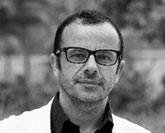
Jordi Clarimón, PhD, is a biologist and the principal investigator of the Genetics of Neurodegenerative Diseases Unit (GNDU), at the Research Institute of the Sant Pau Hospital (Barcelona). He graduated from the University of Barcelona in 1997 and obtained his PhD at the University Pompeu Fabra in 2003. From 2003 to 2006 he enrolled at the Laboratory of Neurogenetics at the National Institutes of Health (Bethesda, MD) as a postdoctoral fellow, under the supervision of professors John Hardy and Andrew Singleton.
2009 he became the PI of the GNDU, which is focused at discovering genetic factors contributing to neurodegenerative dementias, ALS and Parkinson’s disease, among others. He has published more than 130 international publications, has authored five book chapters and has given more than 100 lectures locally and internationally. He is the coordinator of the Dementia Genetics Spanish Consortium, which includes 22 centers across Spain.

I have specialized in health management through the "Executive Program in Healthcare Management" of the IESE Business School of Madrid.
I have carried out scientific policy management tasks such as: vice president of research of the UdL (1995-2000), director of the ANEP (2004-2005), general director of FCYT (2005-2006), general director of the FCRI (2007- 2009), and director of the Institute of Neurosciences of the UAB (2007-2009). I was elected general secretary of COSCE and external advisor of the National Research Agency (AEI of MINECO). I am currently co-chair of the Board of Directors of the European Infrastructure for Translational Medicine (EATRIS 2.012-2.014). In addition, I have been a consultant and evaluator of the European Commission to the Framework Program V; consultant and evaluator of national funding agencies (ANEP, FIS, CICYT) and regional (DURSI); evaluator of the National Research Program of Argentina and France; evaluator of more than 15 international scientific journals; organizer (president) of national congresses (Sociedad Española de Neurociencias, Lleida 2003) and international congresses (Juan March Symposium, 1996). I have also been a consultant to the group of implementation of medical studies of the University of Girona and the external scientific committee of the Research Institute of Santiago de Compostela (formed by the University and the University Hospital of Santiago). Since 2011 I am a member of the Organizing Committee of Expoquimia and member of the Scientific Committee of MIHealth.
I have directed more than 25 research projects funded by national and international organizations. I have served as an external expert advisor to the European Union on the "Aging of the population" program (1999-2002) and I am a member of the High Level Expert Group of Chronic and Degenerative Diseases, Genomics and Neurosciences of the European Commission (1999) -2002). I have received several awards among which the "Outstanding Young Scientist" of the Generalitat de Catalunya (2001) and the National Award of Basic Medical Sciences of the Pfizer Foundation (2005).
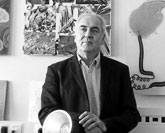
Dr De Felipe began his research career in 1976 at the Cajal Institute, under the supervision of Dr Rodrigo, studying the autonomic innervation of the oesophagus. Having presented his doctoral thesis in 1980, he joined the laboratory of Drs Valverde and Fairén. It was in this period that he began to study the microorganization of the cerebral cortex, a subject that has remained the focal point of his research since then. He developed a simple and effective method for correlative light and electron microscopic studies to analyze the connections between identified neurons at the electron microscopy level. In 1983, he obtained a Fogarty Fellowship (NIH) to work with Dr Jones at the Washington University School of Medicine, St Louis.
One of his most important scientific achievements was the demonstration of the coexistence of neuropeptides with a classical neurotransmitter. From 1984 to 1985 he was appointed as a Visiting Scientist in the laboratory of Dr Jones at the University of California (Irvine). After this period in the laboratory of Dr Jones, he obtained a Tenure in Neuroscience at the Cajal Institute to continue his research on the cerebral cortex. Between 1989 and 1991, he returned to Dr Jones’ laboratory to study the microorganization of the monkey cerebral cortex. In 1991 he returned to the Cajal Institute to establish a research group that focuses on the microorganization of the cerebral cortex in various species (particularly humans) and on the alterations of cortical circuits in epilepsy and Alzheimer disease.
In 2000, he was appointed as Research Scientist, and in 2004 as Full Professor. He was the Spanish Project leader for the NASA Neurolab project and has been the Director of the Cajal Blue Brain Project since 2009. In addition, he is the co-leader of Subproject 1-Strategic Mouse Brain Data of the Human Brain Project. A former associate editor of Brain Research and the chief editor of Frontiers in Neuroanatomy, he serves on the editorial boards of several other journals. A highly cited author (h-46), he has given more than 270 lectures and 40 plenary and keynote lectures. He is the recipient of several awards including the Cortical Discoverer Award from the Cajal Club and Honorary Member of the American Association of Anatomists. Another of his principal interests is the study of the history of our current understanding of cortical organization, and finally he also strives to make neuroscience accessible to as wide an audience as possible.

Prof. Jose Antonio del Rio, has been working for more than 25 years on Developmental Neurobiology, Regeneration and Neurodegeneration. After obtaining his PhD in 1994 from the University of Barcelona, he worked in some international Universities and research centers, including Frankfurt and Freiburg Universities and Bristol-Myers Squibb Pharma at Princeton (NJ). Moreover, he has been honored with many national awards, including the Fundacion Francisco Cobos CSIC Award (2001) and the Generalitat of Catalunya Award of Research (2003).
He has published more than 125 articles in international scientific journals, including Nat Cell Biology, Prog. Neurobiology, Nat. Comm., Sci. Reports, J. Neurosci., Neuron, Development, Curr. Biol., or Nature; and most of them (over 70%) are published in journals belonging to the first quartile. Overall, his publications have received more than 5900 citations (excluding self-citations) and give an h-index (WOS) of 43 in 2018. In addition, Prof. del Rio has participated in more than 40 National and European projects focused on Neurological disorders, being PI of most of them, and has several international collaborations (e.g. Prof. Masato Hasegawa (Japan), Prof. Fanny Mann (France); Prof. I. Zerr (Germany) or Prof. A. Aguzzi (Switzerland), etc.).
Moreover, he has presented more than 110 contributions to National and International Conferences and Congresses, including several invited lectures and the organization of 5 national congresses. His track record of work herein summarized is therefore a solid proof that the supervisor has an undoubtable broad experience in the research topic. In the last 7 years, Prof. del Rio has supervised the work of 6 undergraduate, 11 PhD students and 9 postdoctoral researchers, most of them currently following the scientific career both in public institutions and private companies. Thus, the career development of the students who have worked in his group is a reflection of his commitment with the student and postdoctoral training.

Isabel Fariñas is Full Professor in Cell Biology and director of the Molecular Neurobiology Laboratory at the ERI in Biotechnology and Biomedicine of the University of Valencia. She has authored or co-authored over 90 professional publications in the field of neuroscience, with relevant contributions to the fields of neurodegenerative disease and neural stem cell biology. Her lab focusses on the potential of stem cells for brain repair with a particular interest in stem cell-niche interactions in normal and diseased brains.
Her team is Prometheus Excellence Group of the Valencian Community and belongs to the National Network of Cell Therapy and to the Center for Biomedical Research in Network on Neurodegenerative Diseases (CIBERNED). She serves on the directive board of the International Society of Differentiation and the Spanish Society of Developmental Biology and has served as a board member of the Spanish Society for Neuroscience and the Spanish Society for Gene and Cell Therapy. She has been elected EMBO member since 2013 and scientist of the Science Program of the Fundación Botín since 2014.

Rafael Franco is PhD for the Univ. of Barcelona and Full professor (Catedrático) of Biochemistry and Molecular Biology in 1996. He did postdoctoral stays and two sabbaticals. Dr. Franco has circa 380 papers in indexed journals and according to h-index (63), he is in the top-ten list of Spanish Biochemists and Molecular Biologists.
After the stay in the lab of Dr. Burnstock, who identified purinergic neurons, Dr. Franco founded a research group in the Univ. of Barcelona whose objective was to characterize purinergic receptors at the molecular and functional level. Dr. Franco’s lab was pioneering in Spain and also in Europe in studying G-protein-coupled receptors (GPCRs) from a molecular perspective. Due to the previous expertise in the adenosine metabolism, the first receptors to be studied were P1 purinergic adenosine receptors. In the sabbatical stay in the Immunology division of the Harvard Medical School (Boston, USA), Dr. Franco learnt techniques of protein-protein interaction and the need to obtain specific antibodies against GPCRs. In fact, the lab of the University of Barcelona developed the first specific antibodies for adenosine receptors that served to demonstrate the occurrence of interactions of GPCRs with proteins other than heterotrimeric G proteins. In the nineties the lab participated in demonstrating the occurrence of GPCR heteromers and in identifying the first heteromers formed by two receptors for two different neurotransmitters.
Later on, the lab contributed to the development of nomenclature and specific technology to study the phenomenon of GPCR oligomerization. Recently the lab has been the first to report heteromer disruption in the course of a neurodegenerative disease. The fruit of the research has been relevant and recognized nationally and internationally. One of the main utilities of the discoveries is the potential for development of heteromer-selective drugs, including drugs with pre- or postsynaptic priority action. GPCR oligomerization is now a hot topic that provides new perspectives to understand the functionality and pharmacological and therapeutic potential of GPCRs; oligomerization of GPCRs may be a major breakthrough in the field of biomedicine. Since 1988 Dr. Franco’s lab has received continued support in terms of projects funded in competitive tenders by prestigious public or private bodies. Since 1998 the majority of funded projects are related to GPCR heteromers, in relationship with both CNS function and potential as targets for neurological and neuropsychiatric diseases and drug addiction. The last two SAF/MICINN and the “Heteropark” Eranet-neuron (acting as coordinator of 4 European groups) projects were also related to GPCR heteromers.
In the period 2009-2013, Dr. Franco moved –temporarily- to CIMA (Centro de Investigación Médica Aplicada, Pamplona) to implement a GPCR platform, which included generation of CIMA proprietary molecules, and to head the lab of Cell and Molecular Pharmacology. The overall objective of advancing in translational research in Parkinson's and Alzheimer's disease (the priority in the Division of Neurosciences) was fully achieved. Members of Franco’s lab in CIMA are co-inventors in various patents, the scientific production increased qualitative and quantitatively, and there is still data with potential to generate more intellectual property. 55 post-graduates have been under the supervision of Dr. Franco. They are now professionals working in both Academy and Industry, many of them in top staff positions in 4 Continents: Europe, USA, Asia (in Singapore and Saud Arabia) and Oceania (in Melbourne).
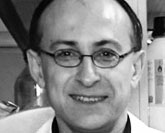
José M Fuentes was born in Villamesias (Cáceres) (1965) and took his BSc (1988) and Ph.D. (1993) in University of Extremadura. His postdoc was in the CEA (Saclay, France). He is presently Professor of Biochemistry and Molecular Biology at his university. He has received the award for Excellence in Degree Studies, the award for Excellence in Ph. D. Studies and the award for Excellence in Biomedical Researchers (Government of Extremadura). He is Head Researcher of the PARK group at CIBERNED. He is also the co-founder of Spanish Society of autophagy (SEFAGIA) and Instituto Universitario de Investigación Biosanitaria de Extremadura (INUBE).
His research interest involves the molecular etiology of Parkinson’s disease (participation of protein products of PARK genes (as LRRK2 or PINK1), environmental factors in neuronal toxicity, changes in basal autophagy in cellular and animal models of Parkinson’s disease, development of new neuroprotective drugs from natural products and metabolism.

Positions and Employment
2000-2002: Huntington´s Disease Society of America Postdoctoral Fellowship.
2001-2004: Post-doctoral fellow, Harvard Medical School, USA
2004-2005: Junior faculty Research Award. Agency for Management of University and Research Grants (AGAUR). Instructor, Department of Cellular Biology, Immunology and Neuroscience, Universidad de Barcelona.
2005-2009: Tenure track Award, National Program for Recruitment and Incorporation of Human Resources (Ramon y Cajal Program).
From 2009: National Evaluation for Academic Professor Position. Agencia Nacional de Evaluación de la Calidad y Acreditación (ANECA). Ministry of Education. Associate Professor, Department of Cellular Biology, Immunology and Neuroscience, Universidad de Barcelona.
2010: Research Acreditation Agència per la Qualitat del Sistema Universitari de Catalunya (AQU). Generalitat de Catalunya.
2010: Evaluation of research activity. Agència per la Qualitat del Sistema Universitari de Catalunya

After a post-doctoral fellowship at the National Institute of Health (Bethesda, USA), he became full professor of psychiatry and founding director of the Alzheimer Memorial Center at Munich University before being appointed professor and chair of psychiatry at Trinity College, Dublin. In 2010, he was appointed as full professor & chair of psychiatry at the University of Frankfurt. In 2013 he was appointed as full professor and AXA Research Fund Chair on Alzheimer Disease at Sorbonne University. He is Scientific Director of the Institut for Memory and Alzheimer’s Disease, Department of Neurology, Pitié-Salpêtrière University Hospital in Paris, France.
Since 2017 he is Chair and Principal Investigator of the Sorbonne University Clinical Research Group on Alzheimer Precision Medicine (GRC No. 21) and of the Alzheimer Precision Medicine Initiative (APMI). He is also chairing the International Cholinergic System Working Group (CSWG) and is Senior Associate Editor of the leading journal of the Alzheimer Association, Alzheimer’s & Dementia.
Prof. Hampel’s major research interests and contributions include the discovery and development of multimodal genetic, biochemical, neurodynamic and neuroimaging biomarkers of neurodegenerative diseases. This includes the validation of multimodal biomarker candidates in mono- and multi-site studies for progression, prediction, detection, diagnosis and classification of AD at different disease stages. His major objective is to transform traditional Neurology, Psychiatry and Neuroscience embracing Precision Medicine based on Complex Systems Theory using advanced Genomics, Systems Biology and Neurophysiology, Big Data Science and Biomarker-guided Integrative Disease Modeling for improved detection, classification, stratification and biomarker-guided targeted therapy development in neurodegenerative diseases, such as Alzheimer's disease.
Dr. Hampel published more than 700 peer-reviewed research papers and edited 8 books, won multiple awards for his research. He holds several large-scale national and international research grants and is principal investigator of numerous research programs and consortia.

Prof. Heneka and his group are involved in basic science and translational research with a focus on neurodegeneration and neuroinflammation. Major diseases of interest and research topics include Alzheimer’s disease, amyotrophic lateral sclerosis, septic encephalopathy and multiple sclerosis. In clinical neurology, Prof. Heneka holds special expertise in neurodegenerative and autoimmune CNS disorders.
Michael Heneka completed his medical coursework at the University of Tübingen, Germany in 1996. He obtained his medical degree in 1998 at the Institute of Pharmacology and Toxicology of the University of Tübingen. Thereafter he was a postdoc in the laboratory of Prof. DL Feinstein, at the University of Illinois at Chicago, Chicago, USA. In 2002 he passed the board examination in Neurology and qualified as a professor in Neurology in 2003 with a habilitation thesis entitled "Inflammatory mechanisms in Alzheimer's disease: characterization and development of therapeutic strategies" at the University of Bonn. He was offered a Fellowship in the Department of Neurosciences, Case Western Reserve University, Cleveland, USA, in the laboratory of Prof. K. Herrup and Prof. GE Landreth in 2004, after which he returned to Germany as a senior physician in the Department of Neurology at the University of Bonn. This was followed by a professorship for molecular neurology at the University of Münster (WWU) from 2004 to 2008. During this time he was head of the Department of Molecular Neuroscience and of the dementia clinic at the University Hospital MS. In 2008 he was appointed as Professor for Clinical Neurosciences at the Rheinische Friedrich-Wilhelms-Universität Bonn. Since 2010 Prof. Heneka has been the Neurological Director of the joint Memory Clinic of the Departments of Psychiatry and Neurology (Clinical Treatment and Research Center, KBFZ), University Hospital Bonn.
Beyond his research, reviewer and teaching duties, Michael Heneka serves as head of the Clinical Research Unit, is a board member of the BMBF Competence Network "Degenerative Dementias" (KNDD) and is a member of the BONFOR Commission. He is also the Organizing Chair of the biennial conference “Venusberg Meeting on Neuroinflammation”. In 2011 he received the Christa Lorenz Award for ALS Research. Also, in received the Hans und Ilse Breuer Award for Alzheimer Research.
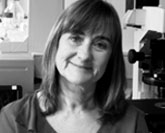
Teresa Iglesias is a Scientist from the Spanish Research Council (CSIC) and Honorary Professor of the Biochemistry Department at the Medical School of Madrid Autonomous University (UAM). She is head of the group “Novel Targets in Neurodegeneration and Neuroprotection” at “Alberto Sols” Biomedical Research Institute (CSIC-‐UAM). Her laboratory is also part of CIBERNED (Network Center for Biomedical Research in Neurodegenerative Diseases, ISCIII). She is also member of several Advisory Panels and Scientific Committees. She obtained her PhD at the Complutense University Medical School, in Madrid, investigating the effects of stress in the central nervous system control of depression and hypertension. She was then involved in the identification of genes contributing to neurological deficiencies in hypothyrodism.
Later she moved to the Imperial Cancer Research Fund / Cancer Research UK in London, where she started working on Protein Kinase D (PKD). She is an expert in neurosignalling and has been studying PKD neuronal functions for more than 20 years, having identified and cloned its first substrate, Kidins220 (Kinase D interacting Substrate of 220 kDa). Her group investigates now the role of PKD and Kidins220 in the molecular mechanisms involved in neuronal death in acute and chronic neurodegeneration, in order to design neuroprotection strategies useful for a broad range of neurodegenerative diseases.

José L. Lanciego is a Staff Scientist at the Center for Applied Medical Research, and an Associate Professor of Neurosciences at the University of Navarra, Pamplona, Spain. Originally trained as a Medical Doctor (University of Salamanca, June 1990), he received his PhD in Neurosciences with honors at the University of Salamanca in October 1994. Later on he joined the Department of Anatomy at the Amsterdam Vrije Universiteit, as a postdoctoral fellow under the supervision of Dr. Floris G. Wouterlood (1992 and 1996), with a main focus on neuroanatomical tract-tracing techniques. In February 1997 he moved to the University of Navarra to be engaged in different studies dealing with the neurobiology of Parkinson’s disease. At present he is ahead of the Basal Ganglia Neuroanatomy Laboratory. His recent research interests include a number of projects dealing with the pathophysiology of Parkinson’s and Alzheimer’s diseases using non-human primate models. Recently his work has focused on the screening of a number of G-protein-coupled receptor heteromeric complexes across the basal ganglia in macaques, as well as a number of gene and cell therapies approaches for Parkinson’s disease.
He is co-editor of the third edition of Neuroanatomical Tract-Tracing Methods, Associate Editor of Frontiers in Neuroanatomy as well as a member of the Editorial Board of Brain Structure and Function and Frontiers in Neuropharmacology. He is a member of the Society for Neuroscience (US), the International Basal Ganglia Society (US) and the Spanish Society for Neurosciences (Spain). He has published a total of 112 papers in international scientific journals. H index is 31 based on the ISI Web of Science (May, 2018), contributed to 10 chapters to scientific books, and co-edited 3 books. Currently available funding includes research grants from European agencies (ERC Advanced, CoEN-Pathfinder and Eranet-Neuron), from the Spanish Ministry of Science as well as from charities (Fundació La Marató TV3). He has been recognized as “Group of Excellence” in the field of Neurodegenerative Diseases by the Spanish Ministry of Health since December 2006.

G. Mengod graduated in Biology at University of Barcelona, Spain (1975) and worked with Dr L. Cornudella at the CSIC-Universidad Politécnica de Catalunya, Barcelona, Spain on nuclear proteins (1976). She earned a PhD in Microbiology at the Biozentrum, University of Basel, Switzerland on monoclonal antibodies and cloning of protein synthesis initiation factor 3 (1986). She worked as Research Assistant at the Laboratoire de Biochimie de la Différentiation of the Institute de Recherche en Biologie Moléculaire, CNRS with Dr K. Scherrer on Molecular Biology of pre-mRNA transcription (1976-1978). She was Research Assistant at the Department of Pharmacology and Experimental Therapeutics, Johns Hopkins University, School of Medicine, Baltimore, Maryland with Dr T. August on monoclonal antibodies and glycoproteins (1978-1981). She received postdoctoral training at the Department of Biotechnology in Sandoz Pharma Ltd. Basel, Switzerland with Dr M. Schreier (1986-1987), and became Laboratory Head at the Department of Central Nervous System, Preclinical Research, Sandoz Pharma Ltd. Basel, Switzerland (1987-1991) where she developed in situ hybridization histochemistry in rat and human brain tissue and directed a group to study GPCR receptors and neurotransmitters, regulation of their expression. Since 1993 she is Staff Scientist of CSIC at the Instituto de Investigaciones Biomédicas de Barcelona.
Dr Mengod scientific work is focused in the study of chemical neuroanatomy of cholinergic, dopaminergic and serotonergic receptors as well as on cAMP involvement in neuroinflammation, neurodegeneration mechanisms, in EAE and in Alzheimer’s disease.
Dr Mengod has published numerous scientific original contributions in peer-reviewed international scientific journals that are extensively cited in the scientific literature. A search in the ISI Web of Knowledge in 2018 shows 8.648 citations of 178 articles in scientific journals and more than 30 contributions to scientific books, with an h-index is of 52. She is member of the editorial board and referee of several major journals in the Pharmacology and Neurosciences fields. She also acted as expert consultant for national and international private and public research organizations, such as Welcome Foundation (UK), National Science Foundation (USA) and the Comisión Interministerial de Ciencia y Tecnología (Spain). Member of Panel estratégico de neurología del Fondo de Investigación Sanitaria 2006-2012. She has been PI in 10 public research projects. Coordinator and Group Leader of the Neuropharmacology and Experimental Neuropathology team in the Institut d’Investigacions Biomèdiques Pi i Sunyer (IDIBAPS), Leader of a group in the Program 1 (Alzheimer’s disease and other degenerative dementias) of the CIBERNED (Centro de Investigación en Red de Enfermedades Neurodegenerativas), Profesora de Investigación del CSIC and leader of the Molecular Neuropharmacology group, Instituto de Investigaciones Biomédicas de Barcelona (IIBB, CSIC), and Vicedirector of the IIBB.

Professor Werner Poewe is Professor of Neurology and Director of the Department of Neurology at Medical University Innsbruck, Austria since 1995. Professor Poewe’s main research interests in the field of movement disorders are focussed on differential and early diagnosis of Parkinson’s disease, its natural history and pharmacological treatment. He has been involved in the steering committees of numerous drug trials in different stages of Parkinson’s disease for the past 20 years and has authored and co-authored more than 650 original articles and reviews in the field of movement disorders.
Professor Poewe served as President of the Austrian Society of Neurology from 2002-2004 as well as as President of the Austrian Parkinson’s Disease Society from 1996-2009. He has been awarded Honorary Membership of the German Society of Neurology as well as the Japanese Society of Neurology and the International Parkinson & Movement Disorder Society. His awards include the Walther-Birkmayer-Prize of the Austrian PD Society, the Dingebauer-Prize of the German Neurological Society as well as the Research Excellence Award of Innsbruck Medical University.
Professor Poewe served as President of the International Movement Disorder Society from 2000-2002. Professor Poewe took over as chair of the MDS European Section from 2011-2013 and is currently active as member of the Managing Board of the Movement Disorder Scientific Panel of the European Academy of Neurology. He has served on the Editorial Board of international neurology journals, including Movement Disorders, Journal of Neurology and European Journal of Neurology and is a regular reviewer for major journals, like Lancet Neurology, Brain, Movement Disorders, Neurology and Annals of Neurology.

José Rodriguez Alvarez (born 1962) is presently Full Professor of Biochemistry and Molecular Biology at the Autonomous University of Barcelona (UAB), Group Leader at the UAB Institut of Neurociences and CIBERNED and Visiting Professor at the Department of Neuroscience, Albert Einstein College of Medicine (New York, USA). He took his Bsc (1985) in Biological Sciences and PhD (1990) in Biochemistry and Molecular Biology from the UAB. During his post-doctoral period, he joined the Department of Neurophysiology and Neuropharmacology at the National Institute for Medical Research (London, UK) to work with Ambrish J. Patel and Tim V. P. Bliss (1991-1992) and the Unité Prope de Recherche 9023 of CNRS/INSERM at Montpellier (France) to work with Joel Bockaert (1993-94). He started his own independent research group at the UAB in1996 and was appointed Director of the Institute of Neuroscience at the UAB from 2002 to 2008.
Jose Rodriguez-Alvarez’s laboratory main interest is, at present, the study of the mechanisms involved in the alteration of synaptic activity and learning and memory dysfunction associated to early stages in Alzheimer’s disease as a way to identify novel therapeutic targets and biomarkers for earlier diagnosis and functional recovery. In particular, he is exploring the altered regulation of functional synaptic AMPA receptors in experimental AD models by a combination of different processes including transcriptional and post-transcriptional gene regulation, changes in AMPA receptors regulatory proteins or alteration in the neurovascular unit affecting the release of angineurins.
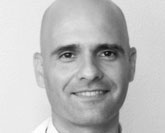
Dr. Sánchez-Juan specialized as a Neurologist at the Hospital Universitario Marqués de Valdecilla. After his residency he was awarded with the Wenceslao López Albo research grant. He spent a year as a researcher in Edinburgh at the Creutzfeldt Jakob National Surveillance Unit in the United Kingdom. Later he graduated in the field of Genetic Epidemiology at the Erasmus MC University (Rotterdam, The Netherlands), where he completed his MSc and PhD. During his stay in Rotterdam, he served as Coordinator of Prion Diseases Surveillance in the Netherlands and gained valuable experience in the field of epidemiology working in the prestigious Rotterdam Study cohort. In 2011 completed his clinical training as an expert in dementia and behavioural neurology at UCSF Memory and Aging Center in San Francisco.
Dr. Sánchez-Juan combines his work as clinician at the Hospital Universitario Marqués de Valdecilla with the scientific direction of the Valdecilla Biobank. He is Principal Investigator of the Dementia Research Group of University Hospital Marqués de Vadecilla at IDIVAL, co- Principal Investigator of CIBERNED group and member of the executive committee of the Dementia Genetic Spanish Consortium.
Dr. Sánchez-Juan is author of 111 international publications indexed in Medline. The main scientific interest of Dr. Sánchez-Juan are neurodegenerative diseases, particularly prion diseases and Alzheimer's disease. His publications include first authorship in two genome-wide association studies on prion disease. He is also first or senior author of some pivotal highly cited articles in the field of prion diseases biomarkers, and he is the senior author of the current clinical diagnostic criteria for these diseases.
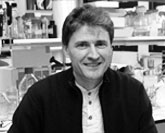
RESEARCH AND PROFESSIONAL EXPERIENCE
- Assistant professor of Biochemistry. Pontificia University School of Nursing. Madrid. Spain. Sept 1980-Oct 1981.
- Assistant Professor; Neurobiology, Cajal Institute, National Research Council. Madrid. Spain. 1989-1993
- Associate Professor, Cajal Institute, National Research Council. Madrid. Spain. 1993-2003.
- Professor, Cajal Institute, National Research Council. Madrid. Spain. Since 2003.
- Director, Cajal Institute, National Research Council. Madrid. Spain. 2009-2017.
- Head of the Department of Functional Neurobiology, Cajal Institute. Since 2017
FELLOWSHIPS/AWARDS
- Fellowships: From Fundacion General Mediterranea, 1980-81.
- CajaMadrid Young Investigator Award, 1981; Serono Award for Research 1999; Pfizer Prize for Biomedical Research 2003. Madri+d Best 2006 Patent (2007).
- Adjunct Professor of Comparative Neuroscience, Yale University (USA) 2010-present
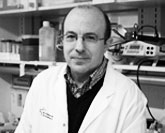
Miquel Vila is the group leader of the Neurodegenerative Diseases Research Group at the Vall d’Hebron Research Institute (Barcelona, Spain), devoted to the elucidation of the molecular mechanisms of neurodegeneration in Parkinson’s disease. Dr. Vila received his medical degree from the University of Barcelona Medical School (Barcelona, Spain) in 1993.
He then moved to the laboratory of Experimental Neurology and Therapeutics, INSERM U289 (Prof. Yves Agid) at the Salpêtrière Hospital in Paris (France), where he obtained his Master degree (DEA) and PhD in Neuroscience from the University of Paris VI, under the supervision of Dr. Etienne C. Hirsch. His PhD work was devoted to the study of the functional consequences of dopaminergic neurodegeneration on the functioning of the basal ganglia. From 1998 to 2001, he worked as a postdoctoral researcher at the laboratory of Dr. Serge Przedborski at the Department of Neurology, Movement Disorders Division, at Columbia University (New York, USA), focusing on the molecular mechanisms of neuronal death in Parkinson's disease.
To continue his research work, he obtained in 2001 a tenure-track position as Assistant Professor of Neurology at Columbia University, the permanent residency of the USA (outstanding researcher category) and a 5-year R01 grant from the National Institutes of Health (NIH, USA). In 2006, he moved back to Barcelona as a Professor at ICREA (Catalan Institution for Research and Advances Studies) to develop a new research group on neurodegeneration at the Vall d’Hebron Research Institute (VHIR) thanks to the support of an European Commission’s Marie Curie Excellence Grant. In addition, he holds positions as Associate Professor at the Department of Biochemistry and Molecular Biology of the Autonomous University of Barcelona (UAB) and as Principal Investigator of the Centre of Networked Biomedical Research on Neurodegenerative Diseases (CIBERNED).
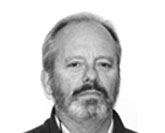
ACADEMIC EXPERIENCE
1974-1979-Bachelor(B.Sc ),School of Biology, Autonoma University Madrid.
1980-1981-Master Degree.-Autonoma University,Madrid.
1981/1984-Ph.D. in Biological Science, Universidad Autonoma Madrid.
1985/86 Postdoctoral Fellow, Centro de Biología Molecular CSIC-UAM Madrid
1986/87 Postdoctoral Fellow, Biological Laboratory Harvard University.Mass USA
SCIENTIFIC EXPERIENCE AS CSIC (Staff Member)
1987/2005-Tenured Scientist from CSIC (Senior Researcher)
2005/2009-Research Investigator (CSIC).
2009-to the present–Research Professor (CSIC)
2007 to the present-PI from CIBERNED
TEACHING ACTIVITIES:
- “Ad honorem “Professor, at Mol. Biology Dept, Unv. Autonoma Madrid (2000-2018).
- Máster on “Molecular Biomedicine”. Mol. Biology Dept, Unv. Autonoma Madrid
- Course BMM6 on "Neurological Diseases".(years 2008-2018 ).
Supervisors: Dr.Javier Díaz Nido (Dpto. Biología Molecular UAM) & Dr. Francisco Wandosell
(CBMSO, CSIC-UAM & CIBERNED).
-PhD Thesis Supervised: 11
-TFG-TFM. Projects Supervised: 15
External Advisor to several Spanish and International Scientific Agencies and Member of the editorial board of various scientific journals.






















The form has been sent successfully.
Thank you
Fundación CIEN - CIBERNED
C/ Valderrebollo, 5. Centro Alzheimer Fundación Reina Sofía.
28031 - Madrid
913 852 200




